The Coronavirus has been taking over the news lately with new confirmed cases being reported nightly on the news. I’ve been fielding emails and direct messages since the COVID-19 first impacted the cruise industry. Today, I learned the cruise line is fielding a high volume of phone calls regarding upcoming cruises, and there have been a number of guests canceling upcoming cruises, even taking the penalty due to the threat of coronavirus. As with anything pertaining to public health, it is important to educated yourself on COVID-19, and keep up to date with the latest from the Center for Disease Control (CDC), as well as monitor travel advisories from the the US Department of State.
The main question I am being asked is what precautionary measures has Disney Cruise Line enacted to protect guests and crew. We cannot share everything Disney is doing because frankly, this information hasn’t been shared with us, however, we did notice a few changes which have previously been reported.
At the end of January, well before our February 20th sailing, Disney Cruise Line sent an email instructing us to call Disney Cruise Line if any member of our stateroom had traveled to mainland China within the past 14 days.
Right in the email, Disney Cruise Line shares they are following a comprehensive plan with protocols to manage this situation based on guided from public health officials.
Disney Cruise Line employs rigorous sanitation standards and consistently receives among the highest scores on public health inspections. We also have a comprehensive plan that outlines protocols for managing this type of situation and closely follow the guidance of public health officials.
Upon arrival to the terminal, we were provided the new Heath Questionnaire with question specific to recent travel to China as well as close contact to someone suspected or with Novel Coronavirus.
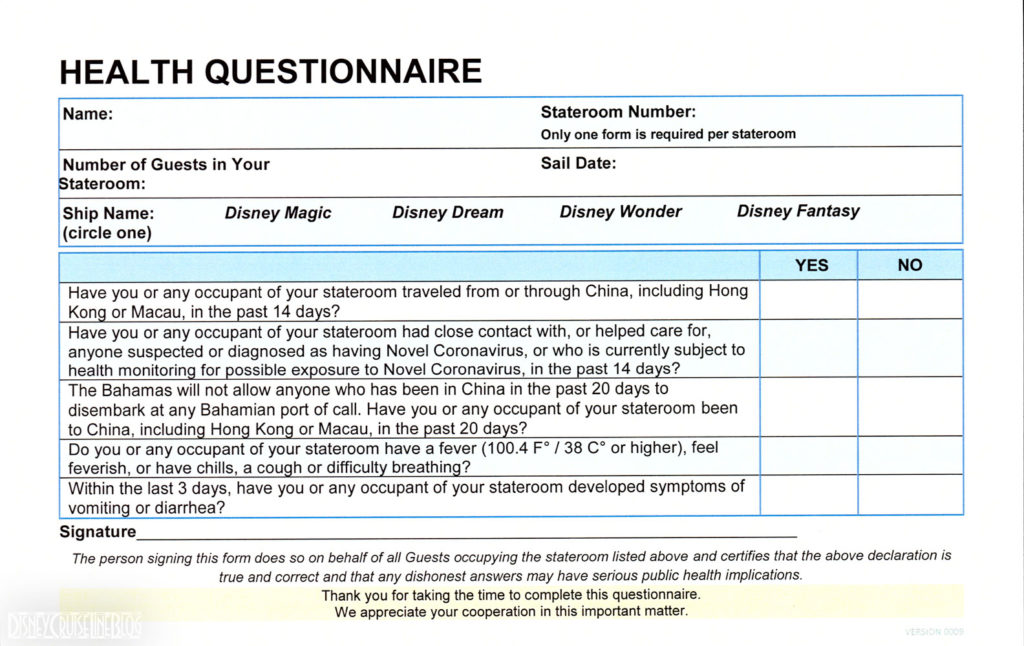
Finally, at the check in desk, the agent checked each page of our passports. Granted, not all passengers are required to present a passport for a closed loop cruise so this would not catch all cases, but it is an added check. Once onboard we didn’t notice anything out of the ordinary. As usual, hand washing was still stressed at all restaurant entrances, and when boarding the ship.
This is about a far as I can go with onboard observations of Disney Cruise Line’s precautionary measures in place to protect passengers and crew from the Novel Coronavirus threat (COVID-19). In order to dig a little deeper, we can look at a press release issued on February 13, 2020 by Cruise Lines International Association (CLIA), the leading voice of the global cruise industry. CLIA issued the press release in response to recent developments concerning COVID-19 and its impact on the global cruise industry.
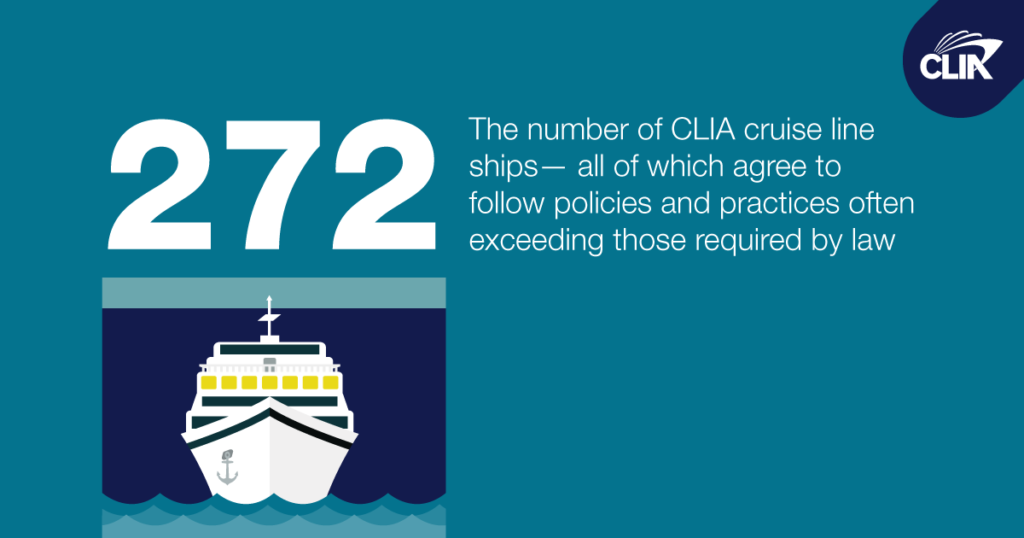
As you read the press release, it will reference CLIA Members of which Disney Cruise Line is a CLIA member cruise line. While not specifically stated, we expect Disney Cruise Line to be following these guidelines as all association cruise line have agreed to follow policies and practices outlined below.
“The health and safety of cruise passengers and crew is and remains the number one priority of CLIA and its member lines, which make up over 90% of ocean-going cruise capacity worldwide.
Given the evolving nature of the ongoing COVID-19—and based upon prevailing guidance from global health authorities, including the World Health Organization (WHO)—CLIA Members have adopted the following enhanced protocols for ocean-going guests and crew who have recently traveled from or through China, including Hong Kong and Macau. These enhanced policies, which are in effect as of 7 February 2020, build upon those which were implemented on 31 January 2020 and continue to allow for informed decisions on a case-by-case basis whether a guest or crewmember will be permitted to board.
- CLIA Members are to deny boarding to all persons who have traveled from, visited or transited via airports in China, including Hong Kong and Macau, within 14 days before embarkation.
- CLIA Members are to deny boarding to all persons who, within 14 days before embarkation, have had close contact with, or helped care for, anyone suspected or diagnosed as having COVID-19, or who is currently subject to health monitoring for possible exposure to COVID-19.
- CLIA Members are to conduct preboarding screening necessary to effectuate these prevention measures. Enhanced screening and initial medical support are to be provided, as needed, to any persons exhibiting symptoms of suspected COVID-19.
In coordination with cruise lines, medical experts and regulators around the world, CLIA and its member lines will continue to closely monitor for new developments related to the coronavirus and will modify these policies as necessary with the utmost consideration for the health and safety of passengers and crew. With strict measures in place, as guided by national and international health authorities, CLIA and its member lines do not believe restrictions on the movement of ships are justified.
Importantly, the cruise industry is one of the most well-equipped and experienced when it comes to managing and monitoring health conditions of those onboard, with outbreak prevention and response measures in place year-round. Furthermore, ships must be fitted with onboard medical facilities, with shipboard medical professionals available around the clock, 24/7, to provide initial medical care in the event of illness and help prevent disease transmission.”
Coronavirus COVID-19 FAQ
CLIA published a COVID-19 FAQ sourced from the CDC and WHO.
What is a coronavirus?
Coronaviruses are a large family of viruses that are known to cause respiratory illness ranging from the common cold to more severe diseases such as Middle East Respiratory Syndrome (MERS) and Severe Acute Respiratory Syndrome (SARS).
What is COVID-19?1
COVID-19 is a new strain of coronavirus that has not been previously identified in humans. The virus at the center of the current outbreak is an example of a novel coronavirus, as the virus does not match any other known virus. This new virus is referred to by health authorities as COVID-19.
Which countries have been affected?
The 2019 Novel Coronavirus was first detected in Wuhan, China, where the vast majority of confirmed cases have occurred. According to global health authorities, additional cases have been confirmed around the world, including in North America and Europe, however the majority of confirmed cases remain confined to Asia.
What are the symptoms of COVID-19?
Patients with COVID-19 have reportedly experienced mild to severe respiratory illness with symptoms including:
- Fever
- Cough
- Shortness of breath
- Breathing difficulties
What steps can travelers take to protect themselves from COVID-19?
Leading health authorities are urging the same personal best practices that are standard for a typical flu season, such as the following:
- Avoid close contact with people who show signs of illness, including coughing or sneezing
- Avoid touching your eyes, nose and mouth with unwashed hands
- Wash your hands often with soap and water for at least 20 seconds
- Use alcohol-based hand sanitizer that contains at least 60% alcohol if soap andwater are not available
Are cruise lines changing their itineraries due to COVID-19?
CLIA Cruise Lines are continually assessing and modifying policies and procedures as developments emerge. This includes the modification of itineraries, where needed, in light of evolving circumstances in some cases. Cruise passengers are encouraged to consult with individual cruise lines and/or travel providers to be informed of the latest guidance available.
Are cruise lines denying embarkation to anyone who has traveled from or through China?
All persons who have traveled from, visited or transited via airports in China, including Hong Kong and Macau, within 14 days before embarkation, will be denied entry onboard a CLIA ocean-going cruise ship.
Are crew members and passengers subject to the same embarkation restrictions?
Yes. All persons who have traveled from, visited or transited via airports in China, including Hong Kong and Macau, within 14 days before embarkation, will be denied entry onboard a CLIA ocean-going cruise ship.
How are cruise lines screening passengers for illness?
CLIA Cruise Lines conduct passenger screenings—including, in some cases, non-touch temperature readings—where appropriate, for guests and crew who have recently traveled from or through the affected areas consistent with prevailing guidance from global health authorities. Screening protocols allow for informed decisions on a case-by-case basis whether a guest or crewmember will be denied boarding.
Based on the latest available information about the illness, and in consultation with medical professionals from member lines, CLIA has updated its sample Travel and Health Declaration/Questionnaire, which is available for reference on www.cruising.org.
What guidance are cruise ships following when making determinations regarding route restrictions?
CLIA and its member lines maintain close contact with leading global health authorities, including the U.S. Centers for Disease Control and Prevention, the World Health Organization and others. Additionally, CLIA and its member lines remain in contact with port authorities and destinations around the world to ensure alignment on guidance and procedures.
What measures are in place onboard cruise ships in the event of passenger or crew illness?
Importantly, the cruise industry is one of the most well-equipped and experienced when it comes to managing and monitoring health conditions of passengers and crew. Cruise lines take precautions to conduct passive as well as active screening of passengers and crew for illness prior to boarding when circumstances demand. Furthermore, CLIA ocean-going members implement outbreak prevention and response measures and their ships must be fitted with medical facilities and shipboard medical professionals available around the clock, 24/7, to provide initial medical care in the event of illness and to help prevent disease transmission.
Are cruise lines offering refunds to passengers whose trips has been impacted by COVID-19?
Passengers are encouraged to consult with individual cruise lines and/or travel providers with regard to compensation policies.
Does the CLIA Health Policy and pre-board screening protocols apply to both passengers and crew?
Yes. Based on the agreed-upon protocols, CLIA cruise line members, will deny entry to all persons who have traveled from, visited or transited via airports in China, including Hong Kong and Macau, within 14 days before embarkation, as well as to passengers or crew who within 14 days before embarkation, have had close contact with, or helped care for, anyone suspected or diagnosed as having COVID-19, or who is currently subject to health monitoring for possible exposure to COVID-19.
How are the CLIA policies and procedures developed as it relates to COVID-19?
CLIA has in place a longstanding member Health Policy that requires screening of all embarking passengers and crew to help prevent the spread of communicable disease. In coordination with cruise lines, medical experts and regulators around the world, CLIA and its member lines have agreed to adopt enhanced screening protocols with regard to the COVID-19 based on publicly available information and prevailing guidance from global health authorities, including the WHO.
Are these policies applicable to river cruises?
These policies apply to all ocean-going CLIA cruise line members. River operators are subject to the laws, regulations and dictates of local health authorities within the specific countries where they operate. These policies may serve as a guide for river cruise lines if they do not conflict with requirements of local authorities.
How will cruise lines determine if a passenger or crewmember has been in or through the affected areas and/or has come in contact with someone who has within the last 14 days?
To assist in implementation of the travel, contact and health screening for COVID-19, CLIA has circulated to member cruise lines a Sample Traveler’s Health Declaration / Questionnaire which can be used in conjunction with the cruise lines’ extensive experience in conducting pre-boarding health screening for guests and crew. Additionally, cruise lines receive detailed information from every passenger and crew including their residence and nationality. Passports contain information on recent travel history.
How big is the Asian cruise market?
The Asian cruise market—while growing—remains relatively small compared to other markets around the world. According to the latest data available to CLIA, the Asian market makes up about 10% of the global cruise market in terms of deployment and about 14% in terms of source passengers. More information about the Asian cruise market is available in CLIA’s 2018 Asia Cruise Industry Ocean Source Market Report.
Do you think that COVID-19 will impact the cruise industry’s growth within the Asian market?
COVID-19 is a challenge for many industries. Speaking for the cruise industry, we believe our members are well-equipped to respond, and we are confident the industry has the resilience and ability to address current challenges over the long-term.
What will be the financial impact of the virus on the cruise industry?
As always, the number one priority is the health and safety of passengers and crew. This is undoubtedly a challenging moment for the entire travel industry—and one we take very seriously. Cruise lines are constantly monitoring the situation as it rapidly- develops and will continue to adapt, as needed, to provide for the needs of guests and crew.
What are the requirements for a cruise line to become a member of CLIA?
Cruise lines are required to follow a comprehensive set of operational and other policies as a condition of continued membership in CLIA. These policies often exceed international and national laws and regulations. The member policies cover a wide array of practices, including environmental protection, safety, security, medical care and passenger and crew health, and of course guest care. These policies are constantly reviewed and adapted to facilitate and promote best practices in the cruise industry. Each year every member line CEO must verify, in writing, that all of the CLIA member policies have been implemented. Implementation of the environmental, safety, security and medical policies is also annually certified, in writing, after independent third-party audit. These policies must also be included in every member line’s Safety Management System required by international law.
When can we expect additional updates from CLIA?
CLIA and its member lines are closely monitoring the ongoing outbreak and will continue to assess and modify policies and procedures as deemed necessary, with the upmost consideration for the health and safety of all onboard. Updates will be made available to the public on an ongoing basis at www.cruising.org.
Where can I find additional information about COVID-19?
Please visit the following websites for more information:
- World Health Organization (WHO)
- United States Centers for Disease Control and Prevention (US CDC)
- European Centre for Disease Prevention and Control (ECDC)

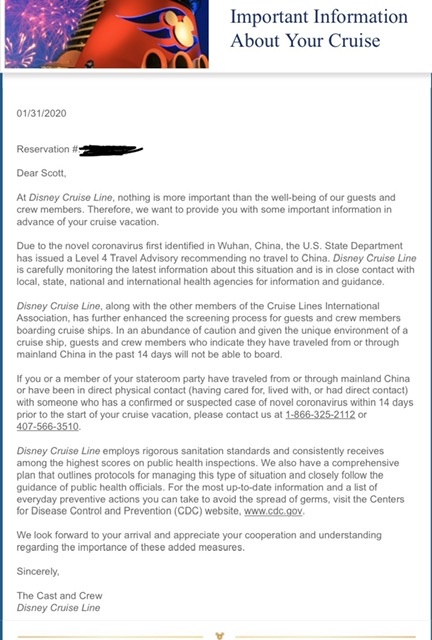
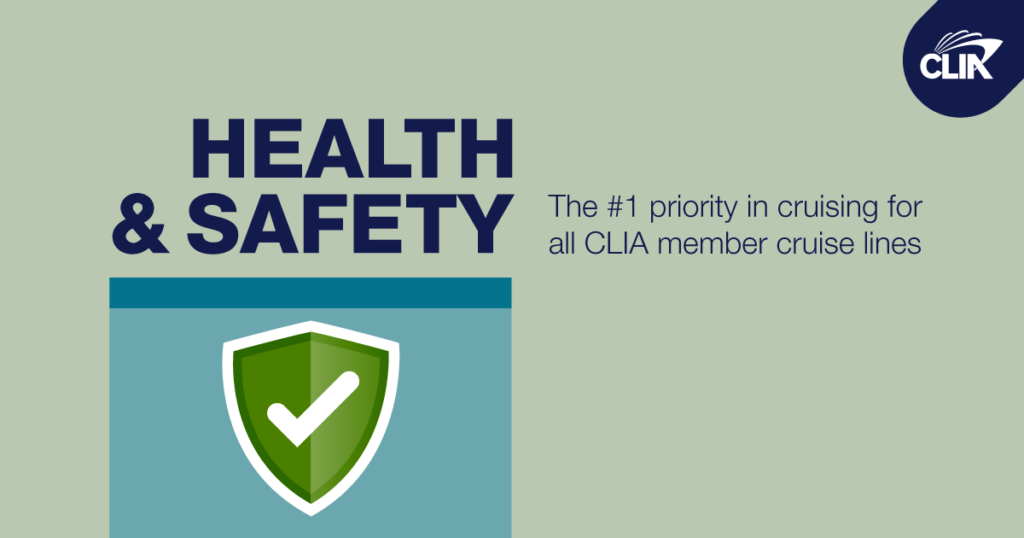
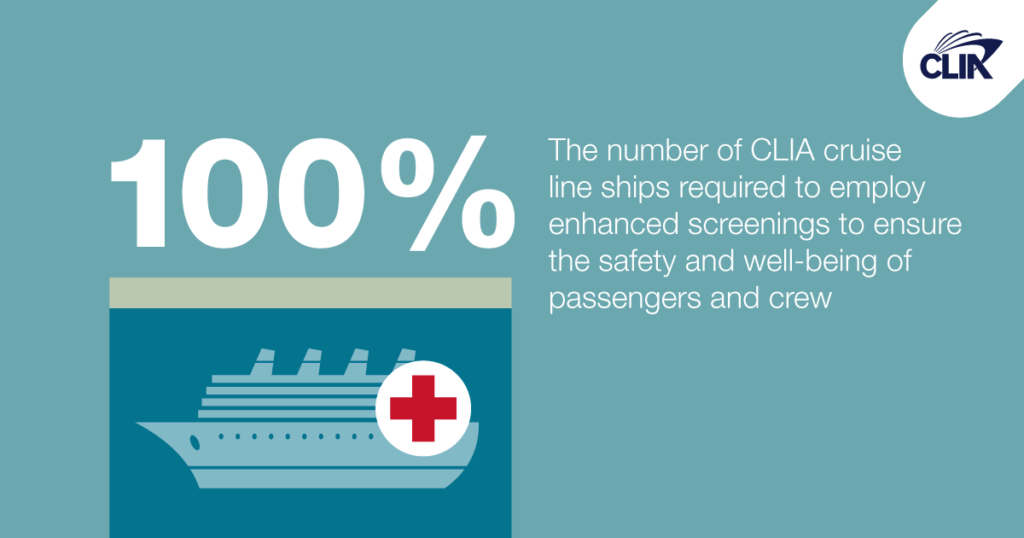
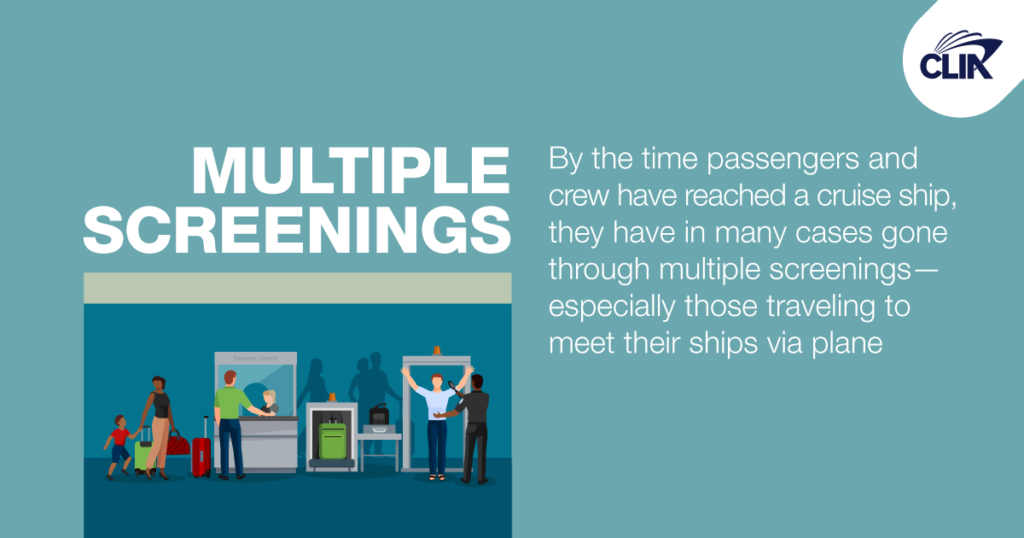
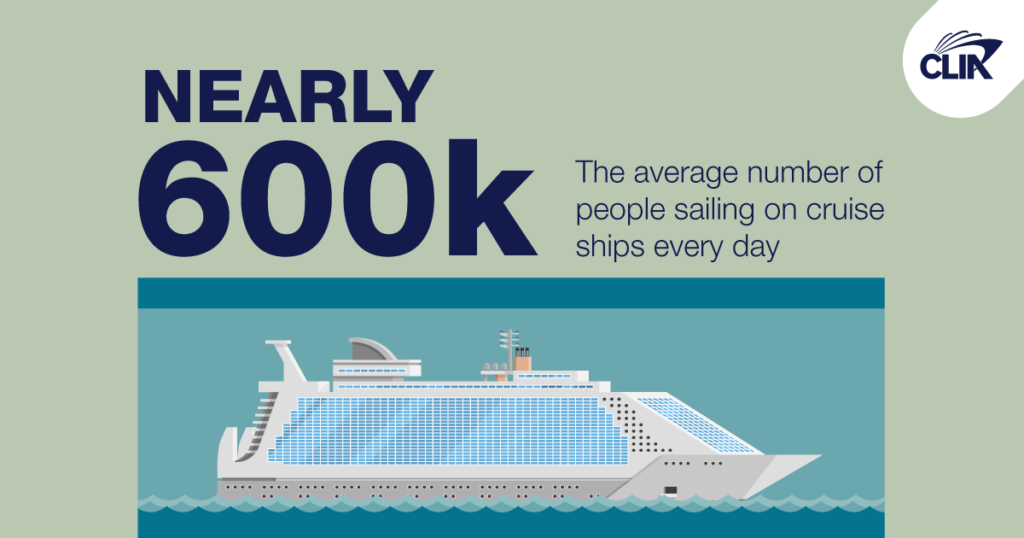
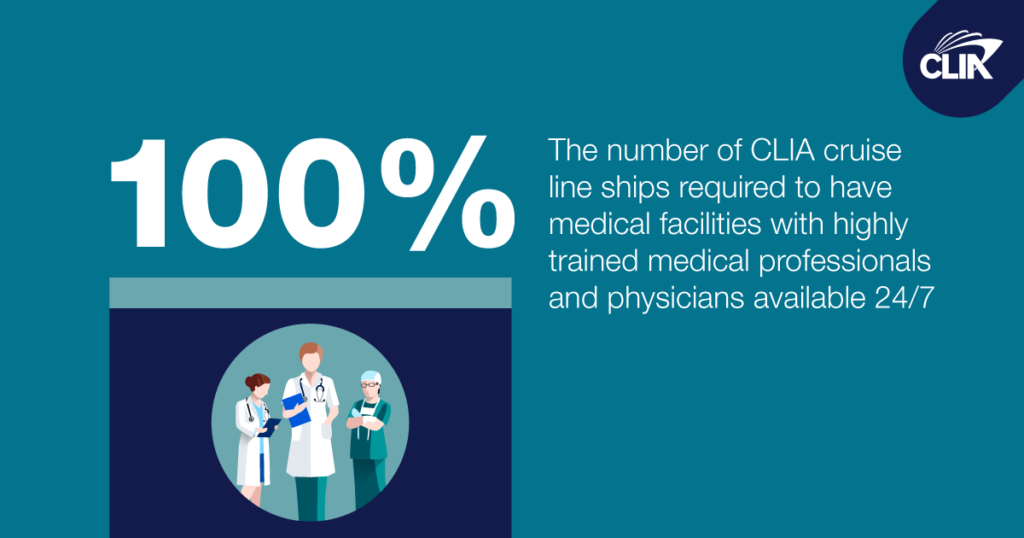

We are in a FB group for our Mediterranean cruise in June, and several people have cancelled due to coronavirus fears, even taking the penalty.
We recently cruised on the Disney Wonder as she repositioned from San Juan, and then stayed on for the inaugural cruise out of New Orleans. At the San Juan terminal, DCL denied boarding to a guest who had been in China within the last 14 days (he was 4 hours short of being past this limit as I understand it). I was glad no leniency was shown. All guests were advised twice prior to the cruise to call DCL if they had been to China in the 14 days prior to the cruise. I also note that the health questionnaire that you have shown is more extensive than was used just a few short weeks ago.
We are sailing with DCL to Greece this summer and I have been watching the Facebook group. We are watching carefully, but have no plans to cancel our Greek cruise. I am hopeful that between now and then a combination of treatment, screening and hotter weather will begin to mitigate the risk of coronavirus, but only time will tell.
I guess if the guest actually showed at the terminal risks are there anyway 🙄
Should include Korea, Japan, Singapore…all the Asia.
We just back from a Disney Western Caribbean Cruise. This was our second cruise with Disney within the last three years. Aside from there being extra hand sanitation wipes throughout the ship we didn’t notice anything different. In fact the crew seemed oblivious to their being an outbreak. One thing that really pissed my wife and I off was the fact that the dinning crew loved to be extremely personal. They would try to high five my kids including my 14 month old and one server, who just got back from Italy, put his hands on my 14 month old son’s cheek. I immediately told him to not touch my son and we wiped his cheek with disinfection. I had to ask at least three different staff members that we did not want to be touched. Oh, and the servers love to do card tricks and other tricks involving some sort of puzzle which involves your kids touching something which likely 100’s of others have also touched.
I would have thought that Disney by now would have educated their employees about touching there guests but apparently not. I will try to call Disney to voice me concern.